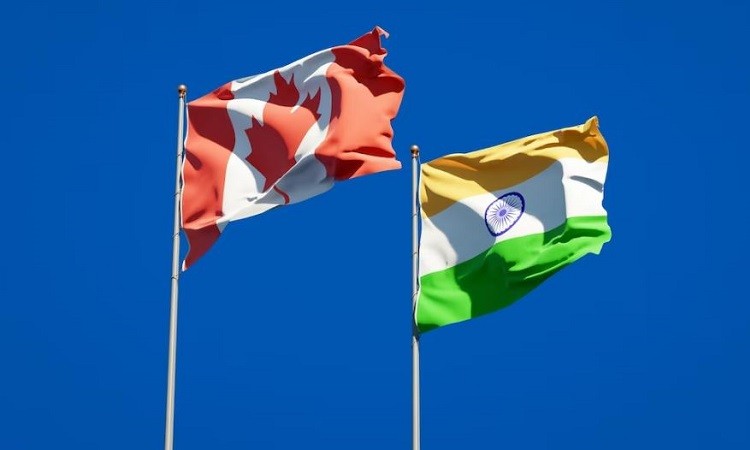
In a significant escalation of the ongoing diplomatic dispute between New Delhi and Ottawa, India has formally requested Canada to recall 40 of its diplomats currently stationed in India by October 10. This move comes in the wake of a contentious diplomatic spat rooted in the tragic killing of Khalistani terrorist Hardeep Singh Nijjar, as reported by multiple media outlets.
The origins of this diplomatic discord trace back to a statement made by Canadian Prime Minister Justin Trudeau during a parliamentary session last month. Trudeau asserted that he possessed credible evidence suggesting the involvement of Indian agents in the assassination of Nijjar, whom he referred to as "a Canadian citizen."
India swiftly and vehemently rejected these allegations, deeming them both absurd and politically motivated. In the midst of this tension, India has been consistently urging Canada to take action against individuals associated with the Khalistani movement and anti-Indian criminal elements who have sought refuge within Canadian borders.
Setting a deadline of October 10 for the repatriation of its 40 diplomats, India's move is widely interpreted as an effort to restore equilibrium in bilateral relations. Just last month, the spokesperson for the Ministry of External Affairs, Arindam Bagchi, had communicated India's request for Canada to reduce its diplomatic staff, which currently stands at 62 individuals. The argument put forth was that this larger diplomatic presence exceeded the number of Indian diplomats in Canada, and it was imperative to achieve parity in this regard.
The backdrop of this dispute is marked by the tragic fate of Hardeep Singh Nijjar, who had been declared a fugitive terrorist by India's National Investigation Agency (NIA). Nijjar met his demise in the parking lot of a gurdwara in the city of Surrey, located in British Columbia, on June 18. He had been accused of orchestrating anti-India separatist activities from Canadian soil and plotting acts of terrorism in the Indian state of Punjab.
Trudeau's assertions linking Indian involvement to Nijjar's murder further exacerbated the already fragile state of diplomatic relations between India and Canada, casting a shadow over the prospects of resolution in the near future.
US Urges India to Cooperate with Canada in Khalistani Separatist's Death Probe
EAM Jaishankar Meets US Secretary Blinken Amid India-Canada Diplomatic Tensions